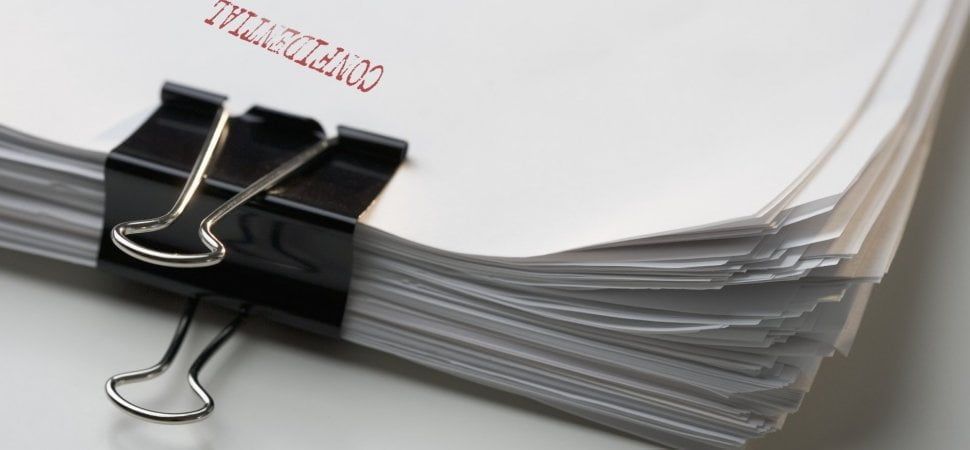
Think about all the information internet companies have collected about you. Now think about all of it being made public. (This shouldn’t be too hard to imagine given the recent, massive Equifax breach.)
Chances are good that the nightmare scenario which flashed through your mind involved sensitive financial data and hackers making lavish purchases or taking out ruinous loans. That indeed is a horrifying picture. But I have bad news for you, this is probably only the tip of the iceberg when it comes to personal secrets stored up and poorly guarded by companies you interact with every day.
Imagine 800-pages of your deepest secrets
At least that’s what you’d have to conclude from a chilling, must-read article by Judith Duportail in the UK Guardian recently. “A typical millennial constantly glued to my phone,” Duportail uses European regulations to request all the data dating app Tinder has collected on her. The company’s response will terrify you:
Some 800 pages came back containing information such as my Facebook “likes”, my photos from Instagram (even after I deleted the associated account), my education, the age-rank of men I was interested in, how many times I connected, when and where every online conversation with every single one of my matches happened …
Reading through the 1,700 Tinder messages I’ve sent since 2013, I took a trip into my hopes, fears, sexual preferences and deepest secrets. Tinder knows me so well. It knows the real, inglorious version of me who copy-pasted the same joke to match 567, 568, and 569; who exchanged compulsively with 16 different people simultaneously one New Year’s Day, and then ghosted 16 of them.
Of course, Tinder, being a dating app, is particularly likely to know extremely personal details about you, but don’t be comforted if you don’t use Tinder. If you use Facebook or other social media apps, the trove of data out there on you is probably even bigger.
“I am horrified but absolutely not surprised by this amount of data,” data scientist Olivier Keyes tells Duportail. “Every app you use regularly on your phone owns the same [kinds of information]. Facebook has thousands of pages about you!”
And while this shouldn’t come as a huge shock — Tinder’s privacy policy comes right out and says they’ll be collecting everything and it won’t necessarily be kept secure– seeing all that information printed out physically was still a wake-up call for Duportail.
“Apps such as Tinder are taking advantage of a simple emotional phenomenon; we can’t feel data. This is why seeing everything printed strikes you. We are physical creatures. We need materiality,” Dartmouth sociologist Luke Stark explains to her.
If you’re not a European citizen (and a journalist with the skills and professional inclination to engage a lawyer and internet rights activist to aid your quest) you’re unlikely to ever see the physical manifestation of the mountains of personal data myriad companies are collecting on you right now. Which is why Duportail’s experiment is such a public service.
What should do you do about it?
What should you do about the reality this experiment revealed? As Duportail points out, for many of us, our online and offline lives have grown so entangled it’s basically impossible to share less data without radically overhauling our lifestyles. Though there are, of course, still sensible steps to take to protect important financial data, like setting up fraud alerts, using more secure passwords or a password manager, and enabling two-factor authentication where available.
But the truth is, while these steps might thwart hackers, they won’t prevent businesses from using your data to tailor what they offer you and how much they charge for it, which is completely legal. And that alone worries some.
“Your personal data affects who you see first on Tinder, yes,” privacy activist Paul-Olivier Dehaye tells Duportail. “But also what job offers you have access to on LinkedIn, how much you will pay for insuring your car, which ad you will see in the tube and if you can subscribe to a loan.” Thinking through the implications of this reality and responding appropriately is beyond the scope of any one individual. Instead we’ll have to have society-wide conversations about the dangers and ethics of this sort of ‘big data.‘
In the meantime though, just visualize that 800-page dossier of secrets to keep you alert to how much you’re really sharing online.

